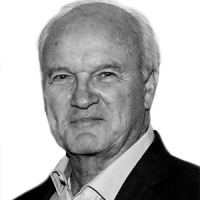During the course of any normal day I usually pay more attention to assembling a grocery list than I do to reading movie reviews, although there are a more than a few film critics who bring huge insight to their work. A.O. Scott of the Times, Joe Morgenstern of the Wall Street Journal and Ty Burr of the Boston Globe are always in my lineup.
But for the past several days it’s been interesting to scan the landscape of different views surrounding American Sniper, the Clint Eastwood-Bradley Cooper film about the life of Chris Kyle, a Navy SEAL who grew up in Texas and served his country – that’s us as in the United States of America—during four tours in Iraq, a war that has managed to mangle two nations, ours and theirs.
Like nearly everything else—a ball game, a rock concert, a political debate—anyone who buys a ticket or takes the time to watch instantly becomes a critic. And today, with twitter and texting and all the other tools we have literally at our fingertips, a debate quickly turns into a cyber-space brawl.
ADVERTISEMENT
People on the left go back and forth with those on the right about the movie’s merits. Is it pro-war? Is it anti-war? And while a platoon of professional essayists, film aficionados and all around ‘I’m smarter-than-you’ folks attack one another’s opinions, there seem to be a couple items that have been forgotten along the side of the long road we’ve traveled for 15 years—15 years!—in Iraq and Afghanistan.
The most obvious is the lack of attention paid to the fact that only about one percent of our population has borne the weight of war. Then there are the families left behind while those fighting are deployed multiple times to both theaters—Iraq and Afghanistan—breaking the military and too often breaking those who sit state-side, worrying, waiting, while 99% of everyone around them dances through the day without any real prospect of danger or death knocking on their door.
In a lot of the reviews of American Sniper that obvious fact is not mentioned. Instead there is amazement at how popular the movie has been since it was released nation-wide a week and half ago, wracking up record box-office returns.
But a strong case can be made that Eastwood and Cooper have produced one of the few films that go beyond an attempt to put the reality of war on a big screen. That is an impossible venture. Nothing can ever come close to the actual violence, fear, noise, clamor, courage, carnage, and the mind altering, lingering, lasting damage done by war to those charged with fighting it.
Yet there is a scene in Sniper that gets to what veterans of wars carry forever and what that burden has meant to all those who wore the uniform from Cemetery Ridge, Somme, The Bulge, Iwo Jima, Chosin Reservoir, Hue City, Mosul, Helmand Province and hundreds of other spots scarred by war: the scene in which Bradley Cooper and his son are in a garage waiting to pick up their car.
The boy is approached by a young Marine who lost his leg in Fallujah. He tells Chris Kyle’s child that his dad is a true hero who saved his life and the lives of other Marines through the devastating skill of his marksmanship, a sniper watching over the constant danger on the urban battlefield below.
Cooper barely moves, hardly utters a line. Instead, the toll of who he is and what he has done and what he must surely never want his little boy to endure is in his eyes and on his face, a portrait of inner pain he wrestles with daily.
A friend of mine who worked on American Sniper for months and attended several screenings in places as different as Dallas, Los Angeles, New York City and Washington D.C. had an interesting observation that mutes some of the ideological ‘wars’ that have consumed multiple critics conducting operations from the safety of their laptops and iPhones.
It revolved around the scene where Chris Kyle sights, shoots and kills the major-league caliber Iraqi sniper from a distance of more than a mile away. In a sand storm.
At a screening in L.A. and New York, the crowd cheered. In Dallas there was no cheering. And when the film was screened at one site in Washington there was only a heavy silence.
Where was that location? Walter Reed National Medical Center, where the wounded, the limbless, the brain damaged are treated for injuries that linger forever and are largely forgotten by a country and a culture where more attention is paid to deflated footballs than the needs and cost of caring for men and women who fought in Iraq and Afghanistan.
American Sniper is a movie. War is a grim reality and with us still.
For more from Mike Barnicle, visit mikebarnicle.com.





